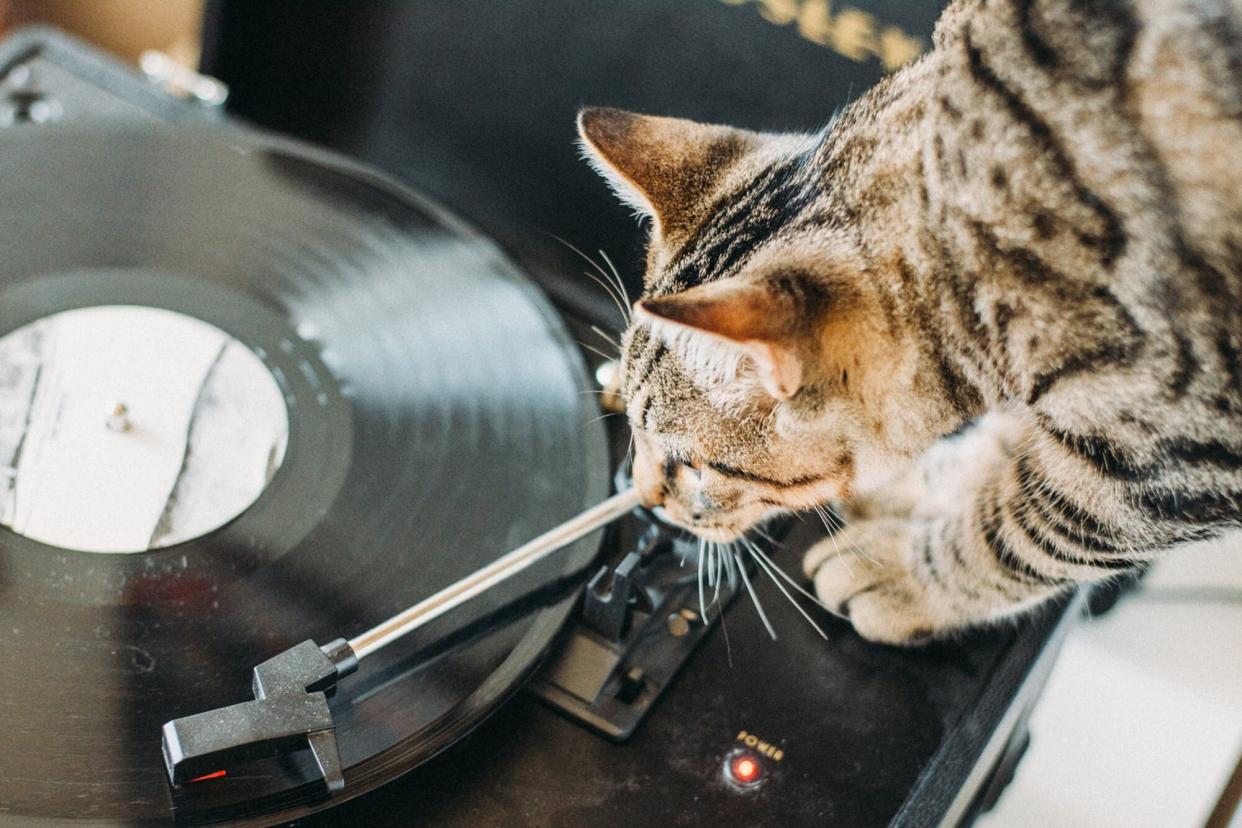Do Cats Like Music? Here's What the Experts Say

Mona Lo / EyeEm / Getty
Our feline friends are highly tuned-in to their environment, which is why their hiding spots are "do not disturb" zones. Some kitties also experience anxiety, often the result of having an illness, being in a new home as a recent rescue, or separation from their favorite humans.
As cat-lovers, we'd try anything to help soothe our furballs, from planning extra extra bonding activities to letting them sleep on our head (if that's what they want) to leaving a playlist on when we're away. But do cats like music? It depends.
What Kind of Music Do Cats Like?
"While we have no way to determine if cats actually 'like' music, studies have shown that certain types of music lowers cats' stress (classical) while certain types raise it (heavy metal)," says Samantha Bell, cat behavior expert at Best Friends Animal Society. "So, we can say that classical music … makes cats feel happier."
Some musicologists are exploring this concept even more. For example, composer David Teie created Music for Cats, a series of "cat-specific selections" featuring a classical music base with an added layer of pleasing, feline-familiar sounds, such as purring and suckling, to prompt relaxation. Other tracks include a smattering of bird chirps, whirring noises, and euphoric tones that might help energize even the most reclined feline.
To the human ear, a soundtrack like this might not seem that refined, but apparently cats know the difference. Teie, a cellist with the National Symphony Orchestra, partnered with researchers at the University of Wisconsin-Madison to consider how cats' hearing differs from ours—and why that matters—before developing music for cats.
In 2015, the results from an independent study with the university indicated that "cats showed a significant preference for and interest in species-appropriate music." In 2019, another study conducted by the Louisiana State University School of Veterinary Medicine concluded that "cat-specific music may benefit cats by decreasing the stress levels and increasing the quality of care in veterinary clinical settings."
RELATED: Does Your Dog Like Listening to Music? See What Science Says
How Music May Help Your Cat
Bell says when she works with shy cats in a shelter setting, she uses selections from Music for Cats as a cue to indicate the upcoming interaction won't be a frightening one.
"Cats in shelters are often only approached for cage cleaning and administering medicine, causing a distrust and fear of humans. I play 'Music for Cats' to help build their confidence and trust in humans," she adds. "They hear this special music and know only good things are about to happen, which helps them to trust."
One way to determine if your cat likes music and how they respond to it is to play classical tracks as a cue to get them in the mood for an upcoming activity. For instance, put on a bright and bouncy classical number when it's playtime or during bird viewing out the window. Later, turn on slow, gentle classical strains before settling down in the evening.
But to really tune in to your kitty's preferences and curious nature, give the species-specific selections a spin, too. In addition to Music for Cats, Teie also worked with the streaming music service Spotify to create a pet playlist for kitties featuring some of his principles called Mellow Meowsic. Another organization, Relax My Cat, designs various playlists of cat music, too. Some cater to felines with anxiety, others are for new kittens or to provide a more calming atmosphere during thunderstorms.
Who knows? Cat music might become another important avenue of communication to share with your sweet and sensitive kitty.
RELATED: Decoding Cat Language: Here's How to Understand Your Feline's Feelings

